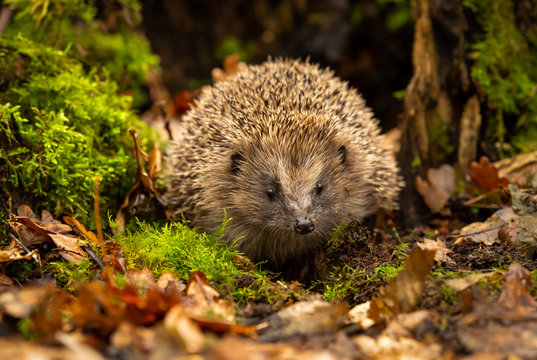Are you looking to add a new furry (or maybe not so furry) friend to your household? With so many options out there, choosing the perfect pet can be overwhelming. But fear not! We’ve done the research and compiled a list of the top contenders for the ultimate best pets to keep at home. From cuddly companions to low-maintenance buddies, we’ve got you covered. So sit back, relax, and let’s discover together which pets are the cream of the crop.
Introduction: Why Choosing the Right Pet for Your Home Matters
Best pet to keep at home is a decision that should not be taken lightly. After all, you want an animal companion who fits your lifestyle and preferences, as well as one that can thrive in the environment of your home. Before making any decisions on what type of pet to bring into your household, it’s essential to research and understand each species’ unique requirements carefully.
You’ll need to consider factors such as space availability, dietary needs, exercise requirements, grooming demands, socialization opportunities and medical care costs before choosing with confidence the kind of pet you want.
While finding the best furry or scaly friend may seem daunting at first glance; breaking down specific options for dogs, cats, rodents, birds, reptiles and aquatic creatures** can help narrow down choices according to living conditions offering friendly living environments for pets.
Top Dog Breeds for Home Living: Which Ones are Best?
When it comes to canine companions, smaller breeds typically fare better in smaller living spaces like apartments or condos. Popular choices include the ever-loyal and affectionate pug, the energetic and playful Jack Russell Terrier, and the hypoallergenic Shih Tzu. Medium-sized dogs like the gentle and friendly Bulldog or the intelligent and adaptable Labrador Retriever can also thrive in a home environment with daily exercise. However, larger breeds such as Great Danes or Bernese Mountain Dogs may struggle without ample space to run around. It’s important to consider breed characteristics when choosing a dog for your home – temperaments can vary widely between different types of dogs, so make sure you do your research before making a decision that will impact both you and your future furry friend!
Feline Friends: The Most Popular Cat Breeds for Indoor Living
Cats are one of the most popular pets for indoor living. They are low-maintenance, independent, and affectionate creatures that make great companions. When it comes to choosing the right cat breed for your home, there are several factors to consider. Some breeds are more active and playful, while others are more laid-back and prefer lounging around.
The Siamese is a popular breed known for its vocal nature and intelligence. They are active cats that love to play and interact with their owners. Another popular breed is the Persian, which is known for its long, luxurious coat and calm demeanor. Persians are great lap cats that enjoy lounging around and being pampered.
If you’re looking for a cat that’s a little more unique, consider the Sphynx. This hairless breed is known for its affectionate nature and playful personality. They require regular grooming to keep their skin healthy, but they make great indoor pets.
No matter what breed you choose, it’s important to provide your cat with plenty of toys, scratching posts, and cozy places to nap. With the right care and attention, your feline friend will thrive in your home.
Small but Mighty: Discovering the Best Types of Rodents to Keep at Home
While some people may shy away from rodents as pets, they can actually make great companions for those willing to devote time and attention to their care. Hamsters are a popular choice, with their adorable chubby cheeks and playful personalities. They require a cage that is at least 12 inches by 24 inches with bedding that needs changing frequently.
Another option is the guinea pig, which loves human interaction and affection. These creatures are social animals who enjoy living in pairs or groups, so it’s best not to keep only one guinea pig. A cage size of around 7-8 square feet per animal is ideal.
For those looking for something a bit more exotic, chinchillas are excellent choices. These soft-furred creatures love to play and climb but do require specific dietary needs such as hay which should be available all day long.
As always, proper research into any pet before adopting them will ensure both owner and pet have a happy life together.
Feathered Companions: A Guide to Choosing the Perfect Bird Species as Pets
Birds can make wonderful pets, but it’s important to choose the right species for your lifestyle. First, consider the size of the bird and the space you have available. Large birds like macaws need plenty of room to move around, while smaller birds like finches can thrive in a smaller cage. Second, think about noise level. Some birds, like parrots, can be very loud and may not be suitable for apartment living. Third, research the bird’s diet and make sure you’re prepared to provide the appropriate food. Some birds require a specialized diet that can be expensive or difficult to obtain. Fourth, consider the bird’s lifespan. Some species can live for decades, so make sure you’re ready for a long-term commitment. Popular pet bird species include budgies, cockatiels, and lovebirds, all of which are relatively easy to care for and make great companions with proper socialization and training.
Reptile Roommates: Understanding the Pros and Cons of Keeping a Snake or Lizard
The Pros and Cons of Keeping a Snake as a Pet
Keeping a snake at home can be an exciting and unique experience. However, it is important to understand the key advantages and disadvantages before making this commitment. One major benefit is that snakes are low maintenance pets, requiring minimal feeding and exercise compared to other animals. They are also fascinating creatures that can provide endless entertainment with their behaviors and movements. On the downside, some people may find snakes intimidating or even frightening, which could lead to problems if children or guests are present in the house. Additionally, certain species of snakes may require specific handling techniques or environments that can be difficult for novice pet owners to manage effectively.
The Pros and Cons of Keeping a Lizard as a Pet
Keeping a lizard as a pet can be rewarding, but it also comes with its own set of pros and cons to consider. One benefit is that lizards are low-maintenance pets, requiring minimal grooming. They also come in various sizes and colors, making them visually appealing. Additionally, some species are known for their docile nature and ease of handling.
However, not all lizards make good pets, as some have specific habitat needs or may carry diseases harmful to humans. Lizards also require specialized care in terms of temperature and lighting, which can be costly. While they are not typically aggressive towards humans or other animals, they can bite when feeling threatened.
Overall, researching the specific type of lizard before bringing one home is crucial to ensure it
Choosing the Right Reptile: Factors to Consider
When it comes to choosing a pet reptile, there are several factors to consider. Firstly, you need to think about the level of care required for each species, as some reptiles have more specific needs than others. Additionally, finding a reputable and knowledgeable breeder or seller is crucial to ensure that your pet is healthy and well-cared for before coming home with you. Another important consideration is the size of the enclosure needed for your chosen reptile; different species require varying amounts of space. Lastly, researching temperament and handling requirements can help determine if a certain type of lizard or snake will be a good fit for you and your family’s lifestyle.
Caring for Your Reptile Roommate: Tips and Tricks
Keeping a snake or lizard as a pet can be a unique and rewarding experience. However, it’s important to understand the responsibilities that come with caring for these cold-blooded creatures. Proper diet is crucial for reptiles, so make sure to research the specific dietary needs of your pet. Providing a suitable habitat is also essential, including proper lighting, temperature, and humidity levels. Regular cleaning and maintenance of their enclosure is necessary to keep your reptile healthy and happy. Lastly, be aware of any potential health issues and seek veterinary care if needed. With proper care and attention, your reptile roommate can thrive in their new home.
Aquatic Allies: Selecting Fish Varieties that Thrive in a Home Aquarium
Aquarium fish are not the only aquatic creatures that can thrive in a home setting. In fact, there are several aquatic reptiles and amphibians that make wonderful pets for those who wish to try something different. However, it’s important to note that keeping these types of pets requires specific care and attention. For example, snakes or lizards will need an appropriate enclosure with proper lighting and temperature control. They’ll also require regular feeding of live prey. Additionally, some species of turtles or frogs may produce quite a bit of waste which means their habitats must be kept clean often. Despite the extra effort involved in caring for aquatic creatures other than fish, they can be rewarding as well as fascinating additions to any home pet collection!
Critter Considerations; Factors to Think About Before Adopting Unique Pets like Hedgehogs or Ferrets
Lifestyle Compatibility: Matching Your Home and Routine with Unique Pets
When considering owning unique pets such as hedgehogs or ferrets, it’s important to think about lifestyle compatibility. These types of animals have specific needs and require a certain level of care that may not fit with everyone’s home and routine. For instance, hedgehogs are nocturnal creatures who can be noisy at night, while ferrets need several hours outside of their cage each day for exercise. Additionally, both pets have specialized diets that may require extra effort and expense from their owners. Before adopting these charming critters, make sure you’re ready to provide the time and resources needed to give them a happy home life.
Cost Analysis: Budgeting for the Care of Hedgehogs, Ferrets, and Other Unique Critters
Before adopting a unique critter like a hedgehog or ferret, it’s important to consider the cost associated with their care. One significant expense is housing – you’ll need an appropriately sized cage or enclosure that provides enough space for them to move around comfortably. You should also factor in the cost of bedding materials, food and water dishes, and toys or accessories.
Beyond basic supplies, regular vet check-ups are necessary as well as potential medical emergencies which can quickly become expensive. Certain species may require specialized diets or supplements that add more expenses on top of these basics.
To ensure your new pet remains healthy and happy without breaking the bank over time
Legal Restrictions: Researching Regulations on Keeping Exotic Animals as Pets
Before adopting a unique pet like a hedgehog or ferret, it’s important to research the legal restrictions in your area. Some states and cities have specific regulations on keeping exotic animals as pets, and it’s crucial to understand these laws before bringing one home. Additionally, some exotic pets may require special permits or licenses to own. It’s also important to consider the potential impact on the environment if an exotic pet were to escape or be released into the wild. By doing your research and understanding the legal restrictions, you can ensure that you are making a responsible and informed decision when choosing a unique pet for your home.
Health Considerations: Understanding the Special Needs of Uncommon Pets in Terms of Diet, Exercise, and Medical Care
When considering unique pets like hedgehogs or ferrets, it’s essential to understand their specific health requirements. These critters may have different dietary needs than more common pets, and they require plenty of exercise to thrive. Additionally, finding a veterinarian with experience in treating these animals can be challenging, so it’s crucial to do research beforehand. While hedgehogs are prone to obesity and dental problems, ferrets require vaccinations against illnesses like distemper and rabies. Before adopting one of these adorable creatures as your pet, ensure that you’re ready for the time commitment and financial responsibility involved in providing them with proper care.
Family-Friendly Favorites; Looking at Popular Pet Choices Ideal for Homes with Children
When choosing a pet for your home, it’s important to consider that some animals may not be suitable for households with children. However, there are plenty of family-friendly favorites that make great companions for kids of all ages. Golden retrievers are known for their patience and love towards children, making them an ideal choice. Another popular choice is the beagle, which has a friendly and gentle nature.
For families looking for something smaller, the guinea pig is an excellent option. They’re easy to care for and enjoy being handled by gentle children. Many families also enjoy keeping rabbits as pets due to their playful personalities.
It’s essential always to supervise interactions between young children and pets to ensure safety on both sides. With proper training, care, and attention, any type of pet can become a beloved member of the family in a home with kids!
Tips and Tricks for Making Any Type of Pet Feel Right at Home
Making Any Type of Pet Feel Right at Home: Tips and Tricks
Whether you are bringing home a new furry friend or an exotic pet, it’s important to make sure they feel comfortable and secure in their new environment. One key to successfully integrating any type of pet into your home is having the right supplies on hand. This may include a cozy bed or den, toys for playtime, and appropriate food dishes.
Another important factor to consider is creating a routine for your pet that includes regular feeding times, exercise, and plenty of love and attention. Some pets may also benefit from socialization with other animals or training classes.
It’s also essential to create a safe space for your pet where they can retreat if they feel overwhelmed or scared. Positive reinforcement techniques can be used when teaching them appropriate behavior and reinforcing good habits.
Remember that every animal has unique needs and personalities. By taking the time to understand their specific requirements and providing them with everything they need to thrive, you’ll help ensure that any type of pet will feel right at home in your household.
In conclusion, choosing the best pet to keep at home requires careful consideration of your lifestyle, living space, and personal preferences. Whether you opt for a furry friend like a dog or cat, a small but mighty rodent, a feathered companion, a scaly reptile, or an aquatic ally, each type of pet comes with its own unique set of pros and cons. By taking the time to research and understand the needs of different pets, you can make an informed decision that will lead to a happy and healthy relationship between you and your new companion. Don’t forget to check out our shop for all your pet needs! From food to toys to accessories, we’ve got everything you need to keep your furry (or scaly) friend happy and healthy.
FAQ
Who makes the best pet to keep at home?
Dogs, cats, and small animals like hamsters and guinea pigs are popular choices.
What is the best pet to keep at home for a small living space?
Small animals like hamsters, mice, and fish are great options for limited living space.
How much time should I devote to my pet at home?
The amount of time varies depending on the pet, but plan on devoting at least an hour a day to play and care.
What if I have allergies to pet hair and dander?
Consider hypoallergenic pets like poodles, sphynx cats, or reptiles like snakes and lizards.
Who can I consult with for advice on the best pet to keep at home?
Your local veterinarian or pet store employee can provide valuable advice on pet selection and care.
What if I’m not sure I’m ready for the responsibility of a pet at home?
Consider fostering a pet or volunteering at a local animal shelter to gain experience and see if pet ownership is right for you.





